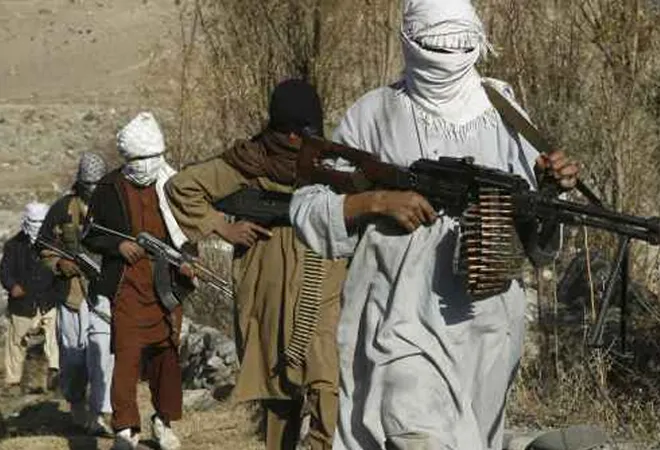-
CENTRES
Progammes & Centres
Location
As Pakistan grapples with an existential polycrisis of the state, the response of the TTP and Afghan Taliban across the border raise additional concerns about the far-reaching implications of the internal chaos

This brief is part of the series, Pakistan: The Unravelling
As Pakistan grapples with an existential polycrisis of the state, the response of the Tehreek-i-Taliban Pakistan (TTP) and the Afghan Taliban across the border raise additional concerns about the far-reaching implications of the internal chaos.
Since Imran Khan’s arrest on May 9, Pakistan has witnessed scenes of anarchy on the streets. The country has incurred damages to the level of 250 million Pakistani rupees with many structures associated with the military and the government coming under attack.
Referring to the protests and the symbolic and literal attacks on the military’s strength and prestige, the TTP commander for Zhob, Baluchistan congratulated the people of Pakistan for waging a struggle against the Pakistani military, exhorting its members to support the protestors in targeting certain military installations. This support for the protests stood in stark contrast to the statement of the Foreign Ministry of the interim government of Afghanistan that urged all stakeholders to exercise restraint and expressed concerns regarding the instability in Pakistan spilling over beyond the border. On the face of it, this mellowed down response is unexceptionable and not surprising. As the Taliban struggles to court the international community for legitimisation and its relationship with Islamabad stands on sticky ground, the statement is a more pragmatic response to wait and see how the situation unfolds in the country. But in Pakistan, the Taliban statement has been seen as an affront.
The internal crisis and the diversion of the military to secure law and order inside the country gives it the space to ratchet up its threats inside the country and indirectly use the brewing discontent to exacerbate its attack on the Pakistani state and the military.
For the TTP, the protests and the consequent riots have emerged at an opportune time. In multiple intelligence-based operations in Northern Waziristan, a key commander and close to 40 militants of the group were killed by the security forces. The internal crisis and the diversion of the military to secure law and order inside the country gives it the space to ratchet up its threats inside the country and indirectly use the brewing discontent to exacerbate its attack on the Pakistani state and the military. In an open call for facilitating the overthrow of the state, the terrorist group urged the people to adopt the Afghan model of conquering Kabul by force instead of relying on political slogans and peaceful demonstrations.
Protests have the potential of being co-opted by different groups to further their own selfish interests. In a country like Pakistan, where discontentment and distrust are entrenched deeply, different sections will often prioritise their own gains at the cost of stability and calm. The TTP’s rhetoric on the protests and its attempts to frame the crisis in the country as one against the all-powerful military can further destabilise the country.
Expressing concern at the possibility of the pre-planned nature of the protests, the interim Chief Minister of Punjab highlighted how the structures that came under attack by the protestors were similar to what the TTP has had under its radar. While the group’s indirect association in fomenting the trouble inside the country is still debatable, its covert attempts at leveraging the crisis to strengthen its position cannot be discounted.
Shivam Shekhawat is a Research Assistant with ORF’s Strategic Studies Programme.
The views expressed above belong to the author(s). ORF research and analyses now available on Telegram! Click here to access our curated content — blogs, longforms and interviews.

Shivam Shekhawat is a Junior Fellow with ORF’s Strategic Studies Programme. Her research focuses primarily on India’s neighbourhood- particularly tracking the security, political and economic ...
Read More +